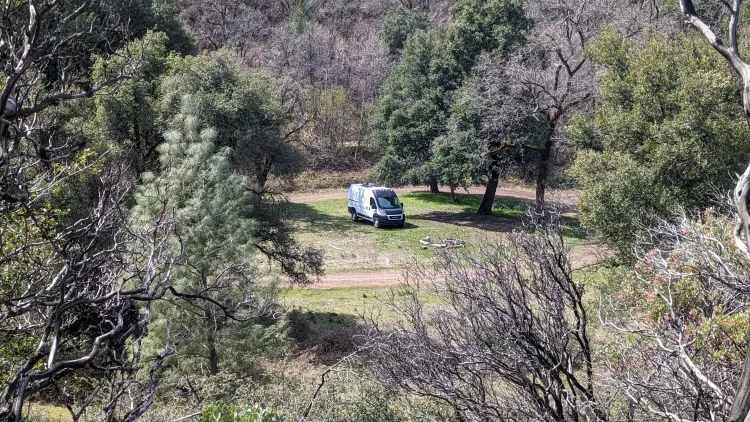Country Count - Does How Many Countries You've Been To Matter?

There are many countries in the world to visit. If you're a traveller or an aspiring one, you might have the desire to see as much of the world as you can. Some people focus on the number of countries someone has been to as a means to judge how well-travelled someone is. Does how many countries you've been to matter?
How many countries you've been to matters if you want it to. If you're going after a record, or to gain experiences and stories, then counting countries can matter. However, there is more to the number of places you've been to than a finite digit.
What counts as visiting a country?
There seems to be a wide array of responses to this question. This article lists some rules like not leaving the cruise ship while sailing through a region as not counting They also mention not deplaning when landing in another country as counting towards your total number. Some forums state other rules to how you count this number like needing to experience certain things to count. Ultimately, it's an arbitrary number that doesn't hold a lot of meaning unless you're going for some world record.
This can be easy for some, but hard for others. A few factors play into this like income and location. Some people, likely the majority of people reading this, likely have a bit of privilege based on where they were born.
If someone is born into a relatively low-income life, they may never have the funds to leave since travelling is generally quite expensive. For example, 30% of Vietnamese residents (who have a lower-than-average annual income) have never travelled before. If someone is born in Liechtenstein, then it's easy to leave as there are so many countries around that have open borders that are so close. (In fact, closer than my usual driving distance for a weekend hike.)
I go as far as counting places that I've driven through. I include this because some places can give you gorgeous views that are often a highlight of the country itself. I don't count layovers where I don't leave the airport. Otherwise, I could double my country count and say I've been to China and Taiwan many more times than I actually have.
What is considered well-travelled?
According to Cambridge, well travelled means a person "having been to many different places, especially to many different countries". While there exists a general definition I believe this answer lies more in the journey, as opposed to the destination.
Well-traveled can mean someone who has travelled extensively. For example, if someone only flies to a country, stays at the airport hotel, gets Mcdonalds delivered and never leaves the hotel, would that be considered well-travelled? To me, no. To be considered well-travelled, I think there needs to be a certain amount of experience gained in a certain area or country. Even the knowledge of how much you dislike a country, or how hard it is to communicate or exist can add to those experiences. To me, it means having a wide range of experiences in other cultures and experiences in how other people live.
It could also come down to how efficient you are at travel. If you are a seasoned traveller and travel frequently, even to neighbouring countries, you possess a set of skills that novice travellers do not. Perhaps it's getting through airport security quickly, or knowing how to make it through customs. Perhaps it's how well you pack, or even if you have a favourite spot to eat that isn't a large chain. I don't think you need to leave your home country to be considered well-travelled.
At this point in my long-term travels, I feel I am well-travelled. I am confident that I can get by in most cultures and know how to enjoy myself no matter where I am. I am efficient in moving around, packing, finding deals, and experiencing whatever culture I'm in. Even with my introverted tendencies, I still feel like I gain knowledge and experience in the places I visit and the people I interact with.
Quantity vs. Quality
If your goal is to accumulate a large number of countries, then you want to focus on quantity. If you take your time to organically accumulate your country count, then experiences will come along with the number. Hence quality is better in this situation.
When you focus on quantity, it might mean using the train through Europe or strictly being on a tour bus in Africa. People who focus on quantity often don't manage to have enough time to experience a depth of quality in all of the locations they visit. Sure, it is possible if you plan the right way, but there are merits to slow, long-term travel.
Quality in the number of places you've travelled seems to be one of the biggest factors in counting. The total number of places is just a number, but the quality means gaining experiences of the places you visit. When you visit somewhere to seek quality, you are gaining a lot from your travels. However, when you stay in one place for an extended amount of time, you might miss out on other cultures and different experiences.
If your goal is to scratch off as many countries as possible on a scratch-off world map poster, then go for it! If you want to take it slower, and not focus on a number, you're sure to find enjoyment too.
In my younger years, I saw a lot of people who focused on quantity. This always seemed odd to me to see people with goals like "30 countries by 30" in their Tinder profile. It never was a goal of mine to accumulate numbers like that. Instead, I generally saw the value in the experiences I could have. Especially as someone fortunate enough to live in the vicinity of the mountains. I've had countless "vacations" where I didn't travel too far from home as there was so much fun to be had around me.
Conclusion
It is possible to quickly increase your quantity while still having quality visits to new countries. In the end, all that matters is how you want to count them. Unless you want to do something professional with that number, then count it however you want. Travelling isn't necessarily about the destination, it's more about the journey (Literalists: I mean the concept and not the definition).






Member discussion